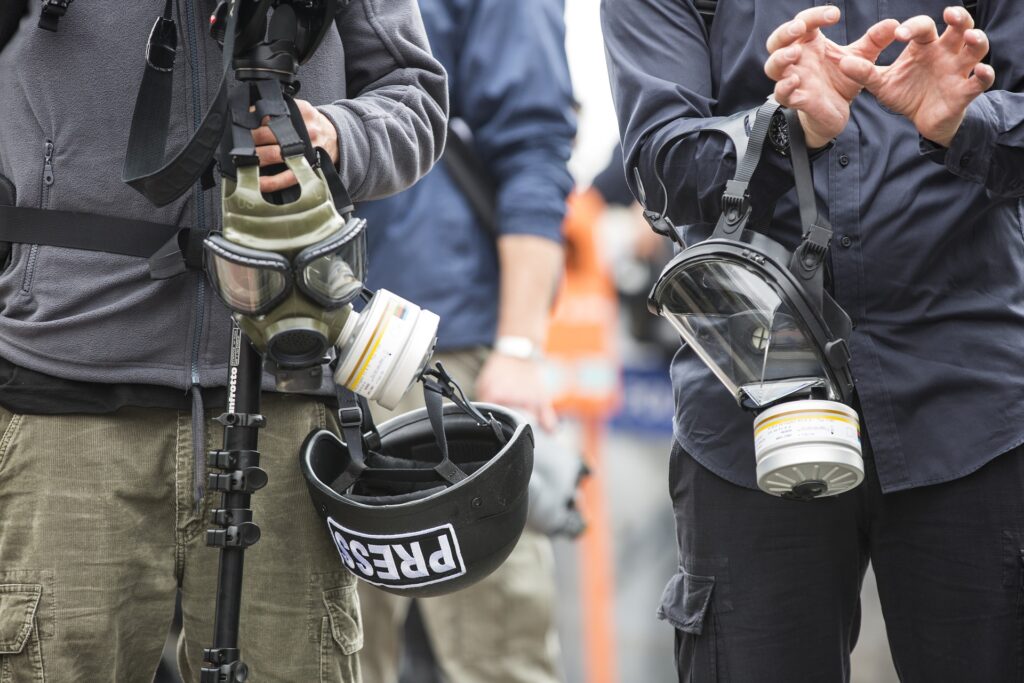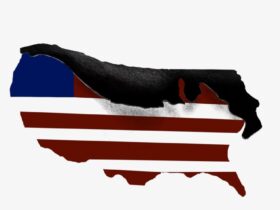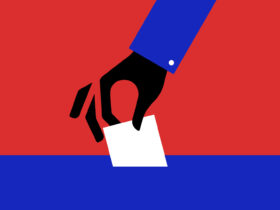Reporters Without Borders (RSF) labeled 2020 as, “a decisive decade for journalism, exacerbated by coronavirus.” With democratic backsliding, civil unrest and economic turmoil taking place amid the COVID-19 pandemic, which is devastating countries throughout the world, journalism and journalists have heightened responsibility and importance.
The ongoing public health crisis that the world is experiencing today is aggravated by the current state of misinformation and media mistrust proliferated throughout the world and manipulated by autocratic governments. While experiencing a pandemic in 2020 seems like the best point in history to do so — because of technological progress and scientific innovation — the rapid rate of communication and means by which information is produced and disseminated means that 2020 brings its own unique and unprecedented challenges. While the world is battling the COVID-19 pandemic, it is also grappling with a never-before-seen infodemic. And though centuries of understanding history and past strategy — from the Bubonic Plague and the Spanish Flu of 1918 to HIV/AIDs epidemic and Swine flu of 2009 — help inform experts of how to tackle this pandemic, there is no guidebook for how to deal with the information crisis that is unfolding.
The World Health Organization reports that managing COVID-19 is not just about containing the airborne virus, but is also about containing the infodemic that promotes misguided behaviors and increases the harm from mis- and disinformation. A September report from the WHO, published in a joint collaboration with other international organizations like the United Nations, the International Federation of Red Cross and Red Crescent Societies and the International Telecommunication Union, among others, explores the implications of this pandemic as the first in history, “in which technology and social media are being used on a massive scale to keep people safe, informed, productive and connected.” But these organizations identify the key concern with this double-edged sword: that the same networks being used to inform, are also being used to “undermine the global response and jeopardize… measures to control the pandemic.”
Infodemics occur when an overabundance of offline and online information leads to the dissemination of falsehoods. This not only creates panic in countries where ordinary citizens are unable to look to their government for clarifying information (as their government is often the actor responsible for the proliferation of bad information), but it also severely damages any efforts to legitimately contain the crisis. The WHO was clear on this impact: “misinformation costs lives.” Fake news is no longer just a term that is carelessly tossed around to deflect blame and cast doubt and misinformation is not just a nebulous concept to be worried about in the coming years. The world ought to be worried now, and if countries, especially democratic ones, believe that an informed public and the ability to think openly and freely is essential to society, then it also must act now.
It’s clear, then, why RSF labeled 2020 as the most decisive decade for the future of journalism. In their annual Press Freedom Index report, the organization wrote that the “COVID-19 pandemic [highlighted]and [amplified]the many crises that threaten the right to freely reported, independent, diverse and reliable information.” The next ten years that the world is about to experience is pivotal in understanding the role that journalists, and a free global press, have in combatting misinformation. Though there are many tools that can be used by governments, technology firms, NGOs, militaries and other actors to combat misinformation, journalists remain on the frontlines in the battle for the truth. Just as healthcare workers are on the clinical frontlines of the coronavirus pandemic, journalists are on the information frontlines of the simultaneously occurring infodemic.
“The coronavirus pandemic illustrates the negative factors threatening the right to reliable information, and is itself, an exacerbating factor,” RSF secretary-general Christophe Deloire said. “What will freedom of information, pluralism and reliability look like in 2030? The answer to that question is being determined today.”
Throughout the world, we can see how this question’s answer is being played out. Belarus has seen turmoil for the past few months following the Eastern European’s presidential election in early August. Since then, the government has suppressed free expression both off- and online, and has also cracked down on media freedom. The 2020 Belarusian protests are an ongoing series of protests and demonstrations against President Alexander Lukashenko; they are the largest anti-government protests in the country’s history. Lukashenko was inaugurated for another five-year term in September despite the European Union rejecting the election’s legitimacy and the country’s citizens calling for new elections. Lukashenko’s government has since used violent tactics against protestors, including reports of torture and sexual assault, and has arrested dozens of journalists. These protests are ongoing today and Belarusian authorities continue to arrest, assault and obstruct journalists attempting to cover these historic demonstrations.
In Thailand, thousands of people, particularly young people, have taken to the streets to demonstrate against the current government. According to the Council on Foreign Relations, the protests in Thailand have, “pushed the country closer to dangerous conflict between pro-democracy demonstrators … and the royalist military and Prime Minister Prayuth Chan-oha.” This tension has been mounting for months and protestors have called for constitutional reforms, new elections and significant overhauls of the Southeast Asian country’s traditional monarchy. In October, Reuters reported that the Thai police ordered an investigation into news outlets and imposed restrictions on the popular messaging app Telegram under emergency measures to try and stop the protests. The attempt failed, and thousands still gathered in Bangkok, calling out the government’s attempt to take away the protestor’s right to information. The government has called for the removal of content published by major media outlets, claiming that it violated Thai laws, and has begun probes into popular outlets. The Thai Enquierer’s editor-in-chief denounced these actions, stating that “journalism is not a crime, censorship is not an option.”
Current dangers to press freedom are also occurring in traditional Western countries. A proposed bill in France would make it illegal to disseminate videos or photos that identify the police with the intent to harm. The Guardian reported that critics of the bill identify the proposal as a danger to press freedom, and comes amid a growing concern over police violence in the country. For journalists covering demonstrations or police conduct, there is a concern that the government could then search journalists’ homes, offices, computers, emails and social media accounts. RSF said the proposal led to a “slippery slope” because intent of photographs is hard to determine, especially for photojournalists.
But violations of press freedom are not just a cause of concern in France, Belarus and Thailand; the U.S. must be vigilant of the ongoing press freedom violations and media manipulation happening at home. The U.S. ranked 45th out of 180 countries on the 2020 World Press Freedom Index. Though it ranked 48th in 2019, it has dropped dramatically in world rankings since 2013, when it ranked 32nd. Since President Donald Trump entered office, the U.S. has dropped seven spots and is currently labeled a “cause for worry.” The U.S. Press Freedom Tracker tallied more than 880 aggressions toward the press in 2020 alone, and at least 37 of those incidents were against journalists covering the election. Traditional American allies and similar countries such as the United Kingdom, South Korea, Canada and Germany all outrank the U.S. in terms of press freedom.
RSF specifically identifies “Trump-era hostility toward [the]press” as the reason for this labeling. In the past four years, Trump has publicly denigrated and harassed journalists; this has been exacerbated by the national Black Lives Matter protests and the COVID-19 pandemic, the former of which saw dozens of journalists arrested and assaulted. This anti-press sentiment has also made its way into local governments and to the American public; mistrust of traditional news media and the labeling of everything as “fake news” is now a cultural and social phenomenon, made public and made widespread by a president that touts these views on the highest platform in the country. Under Trump, the White House has limited press access, denied specific journalists access to press engagement and has strategically failed to provide daily White House press briefings, traditional to the office.
The U.S. is a traditional beacon of democratic ideals and free expression. And while it often tracks and monitors violation of freedom in foreign countries, it cannot continue to do so without first identifying the hypocrisy of its actions. The U.S. continues to slip in the rankings of global press freedom and its treatment of journalists, who are on the frontlines of this infodemic, must be reevaluated with a more critical lens. The U.S. will serve as a better role model, better international leader and better champion of democracy once it improves its internal treatment of the media.
This hope can be seen with President-elect Joe Biden, who just last week won the U.S. presidential election in an unprecedented and historic victory. RSF has already called on the former vice president to reverse the damage done to press freedom under the current administration. RSF launched the #PressFreedomPact ahead of the election to encourage presidential candidates to publicly commit to upholding the principles of press freedom, especially amid the pandemic. The pact encourages eight points of action, including an affirmation of commitment to press freedom within the first 100 days in office, a congressional hearing on press freedom in the U.S., the signing of a federal shield law, an amendment to the Espionage Act to ensure that journalists cannot be prosecuted and more.
“The world will be closely watching President-elect Biden’s next steps and we urge him to seize this opportunity to take a stand for press freedom,” Deloire said.
2020 is the deciding decade, and the world watches closely as global press freedom continues to wax and wane. The results of the 2020 election, resulting in a one-term presidency for Trump, may bode well for the state of journalism in the U.S., and subsequently, the return of the U.S. as an international role model for free expression.







